[All links lead to Spanish language websites unless otherwise noted]
Gather civil service activists, entrepreneurs, researchers, communicators, (unofficial) governmental representatives, and of course, hackers or developers of different ages and backgrounds for a few days. Give them a theme to discuss and let them organise themselves. The result will be a couple of days with great creativity, an outpouring of knowledge, passion for what is being done and a lot of camaraderie.
With that recipe, also known as an ‘unconference‘, Abre Latam, an event about Open Data and transparency in Latin American governments, took place in Montevideo, Uruguay, from June 24 to 25, with D.A.T.A. and Ciudadano Inteligente as the organisations that devised and successfully coordinated the event.
And although one might think that the topic is a bit dry, it's enough to have a look at the number (30) and variety of sessions held (from one about ‘Cultura de Datos Abiertos’ [Culture of Open Data] to ‘Tecnología de la accesibilidad’ [Technology of Accessibility], to others with wider themes like ‘Brecha digital’ [Digital divide] or very specific ones such as ‘Scraping’) to realise that there wasn't actually enough time to continue bringing up topics, analysing them and generating solutions, alternatives and work plans. Which doesn't mean that the participants didn't feel satisfied with the meeting.
For example, Fernando Briano of Picando Código finds it very pleasant to meet people in the same field as him and discusses how Abre Latam turned out to be a new experience for him:
El formato es genial, y espero hayan más eventos inspirados en él por estos lados. La idea es hacer una ‘conferencia’, pero completamente horizontal. Acá no hay ‘oradores’ y ‘público’ – sin escenarios – en la desconferencia todos somos participantes. Opiné, facilité alguna charla y pude presentar mi proyecto MNAV API en una lightning talk.
The format is brilliant and I hope that there are more events inspired by it in these parts. The idea is to have a ‘conference’, but completely horizontal. Here there are no ‘speakers’ or ‘public’ – without stages – in the deconference we are all participants. I thought that it facilitated conversation and I was able to present my project, MNAV API, in a lightning talk.
Salvadorian Iris Palma, apart from hoping for a second edition of Abre Latam, sums up the spirit of the event very well in this post:
Lejos de ser una reunión para enseñar, creo que todos fuimos a aprender; no hubo nadie que no indicara un aprendizaje nuevo, una iniciativa aún desconocida o mejor aún una idea o contacto con el que trabajar al regreso de nuestros países. Me dio gusto ver gente de Centroamérica (considerando que yo era la única salvadoreña en la Des-Conferencia); de Guatemala, Congreso Transparente y de Costa Rica, de Grupo Inco. Interesante fue conocer en vivo y a todo color a personas de quienes había leído algunos artículos y/o blogs, y confirmar que es gente que sabe lo que hace, pero más aún ama lo que hace. Nos sentamos en el suelo, hicimos chistes, discutimos puntos de vista, nos contradecimos, nos volvimos a reconciliar y al final conclusiones y expresiones de interés para actuar en conjunto fueron el resultado de estos dos intensos días de actividad.
Far from being a meeting to teach, I think that we all went to learn; there was no one who didn't indicate having learnt something new, a still unknown initiative, or better still, an idea or contact to work with on returning to our countries. I enjoyed seeing people from Central America (considering that I was the only Salvadorian in the deconference); from Guatemala, Congreso Transparente and from Costa Rica, from Grupo Inco. It was interesting to meet people in the flesh, whose articles and/or blogs I had read, and to confirm that they are people who know what they are doing, but love what they're doing even more. We sat down on the floor, we made jokes, we discussed points of view, we contradicted each other, we made up again and eventually conclusions and expressions of interest to take joint action were the result of these two intense days of activity.
The Argentinian organisation Asociación Civil por la Igualdad y la Justicia [Civil Association for Equality and Justice], ACIJ, deems ‘that it was a unique chance to promote bringing programmers and social organisations together’ and adds:
…se presentaron iniciativas producidas a partir del aprovechamiento de datos abiertos, entre ellas dos proyectos de ACIJ – uno sobre transparencia en los procesos de selección de jueces y otro, desarrollado con Wingu, sobre empoderamiento digital y participación ciudadana en villas – lo cual permitió conocer las opiniones y recomendaciones de especialistas en temas de uso de software libre para el procesamiento de datos.
…initiatives produced since the use of open data were present, among them two projects from ACIJ – one about openness in the processes for selecting judges and the other, developed with Wingu, about digital empowerment and citizen participation in urban slums (villas) – which allowed us to get to know the opinions and recommendations of specialists regarding issues with the use of free software for the processing of data.
For his part, Rodolfo Wilhelmy from the iniciative Codeando México was left ‘excited and inspired by the regional community’, and concludes the following:
Es imperativo que transformemos estas buenas intenciones en valor para la sociedad, de lo contrario nunca se entenderá el beneficio de nuestra postura. La mejora de servicios públicos, por ejemplo, podría ser un área de oportunidad para validar el gasto de recursos en la apertura y mostrar al menos, beneficios tangibles a nuestros gobernantes. Se tiene que pensar más allá de la transparencia y la rendición de cuentas. Los datos abiertos tienen el potencial de rediseñar nuestras sociedades, y es tiempo de que comencemos a generar mayor valor para propiciar esta coapertura.
It's imperative that we transform these good intentions into value for society, otherwise the benefit of our stance will never be understood. The improvement of public services, for example, could be an area of opportunity to validate the spending of resources in openness and show tangible benefits to our rulers at the very least. One has to think beyond transparency and accountability. Open data has the potential to redesign our societies, and it's time that we start to generate greater value to bring about this co-opening.
As for more specific topics, Manuel Portela, in a post that summarises her points of interest in Abre Latam, tries to define the impact of the participatory initiatives and open data from the question: ‘What is a correct indicator to measure the participation and policies of open data?’ and highlights three factors that determine whether a participatory tool is more successful than others:
A que generan historias que realmente interpelan a las personas a través de la emoción, ideales, etc.
A que manejan correctamente y emprolijan la información, con lo cual se vuelve una herramienta útil para generar mapas de información.
A que generan confianza ya que se valen de otros medios que los validen, como los medios de comunicación u organizaciones del tercer sector.
Those that generate stories that really question people through emotion, ideals, etc.
Those that manage correctly and polish information, with which it becomes a useful tool to generate maps of information.
Those that generate trust, as they make use of other means that validate them, such as means of communication or third-sector organisations.
Gastón Roitberg of La Nación Data, a journalism data project of the Argentinian daily La Nación, published two articles in the project's blog, summarising the two days of Abre Latam. The first reveals some of the sessions held, like for example:
Cómo mejorar las habilidades en el uso de los datos. Desarrollar más capacidades en la ciudadania para entenderlos. Reducir la brecha entre máquinas y gente, y entre la publicacion de los datos y las apps finales. Por otro lado, se sugiere definir las audiencias: quiénes procesan y quiénes consumen. Se requieren más sectores involucrados: gobiernos publicando datos de calidad y programadores desarrollando apps útiles.
How to improve skills in the use of data. Develop a greater capacity in citizens to understand them. Reduce the gap between machines and people, and between the publication of data and the final apps. On the other hand, it is suggested that the audiences are defined: those who process and those who consume. More committed sectors are required: governments publishing quality data and programmers developing useful apps.
In the second article, Roitberg briefly reviews fifteen open data projects presented on the second day of Abre Latam, like these two:
Lima IO, la ciudad que habla: Desarrollaron un hardware y una plataforma en Internet que contiene información ambiental capturada a través de unos sensores especiales. Antonio Cucho, uno de sus responsables, dice que lo armaron para que el gobierno pueda tomar decisiones más precisas.
La politica del Open Data. Ciudadano Inteligente.org: Felipe Heusser, uno de sus responsables, invitó a reflexionar sobre lo que hay de política en el movimiento de datos abiertos. Para el activista ‘la agenda de los datos abiertos no es neutral, dado que como afirma el sociólogo español Manuel Castells la información es poder’. Juan José Soto, de la misma organización explica en video los alcances del proyecto.
Lima IO, the city that talks: They developed hardware and an online platform that contains environmental information captured across special sensors información. Antonio Cucho, one of the people in charge, says that they assembled it so that the government could take more accurate decisions.
The Open Data policy. Ciudadano Inteligente.org: Felipe Heusser, one of the people responsible, called for us to reflect upon what stands for policy in the movement of open data. For the activist ‘the open data agenda is not neutral, given that, as Spanish sociologist Manuel Castells states, information is power’. Juan José Soto, from the same organisation, explains the scope of the project in a video.
Abre Latam also provided a stage for the Open Knowledge Foundation to launch the Spanish-language version of School of Data [en], or Escuela de Datos. Through different courses and other tools, this project aims to ‘empower civil organisations, journalists and citizens in such a way that they are capable of using data effectively and efficiently.’ In their blog they write:
Con el apoyo de Michael Bauer y Zara Rahman del equipo de School Of Data quienes días antes estuvieron haciendo una serie de talleres en Bolivia, Chile y Argentina hicimos la presentación del proyecto, el proposito; invitar a más personas a que se sumen y participen compartiendo su experiencias o su conocimiento en el uso de datos de toda la región.
With the support of Michael Bauer and Zara Rahman from the School Of Data [en] team, who were making a series of workshops in Bolivia, Chile y Argentina days before, we presented the project, the purpose; inviting more people to join in and participate while sharing their experiences or knowledge in the use of data throughout the region.
To read more about Abre Latam you can also view a post on SocialTIC, which covers the initiatives that most caught their attention, the special from the magazine Espacios Políticos about Open Data, or the article from la diaria in Uruguay.

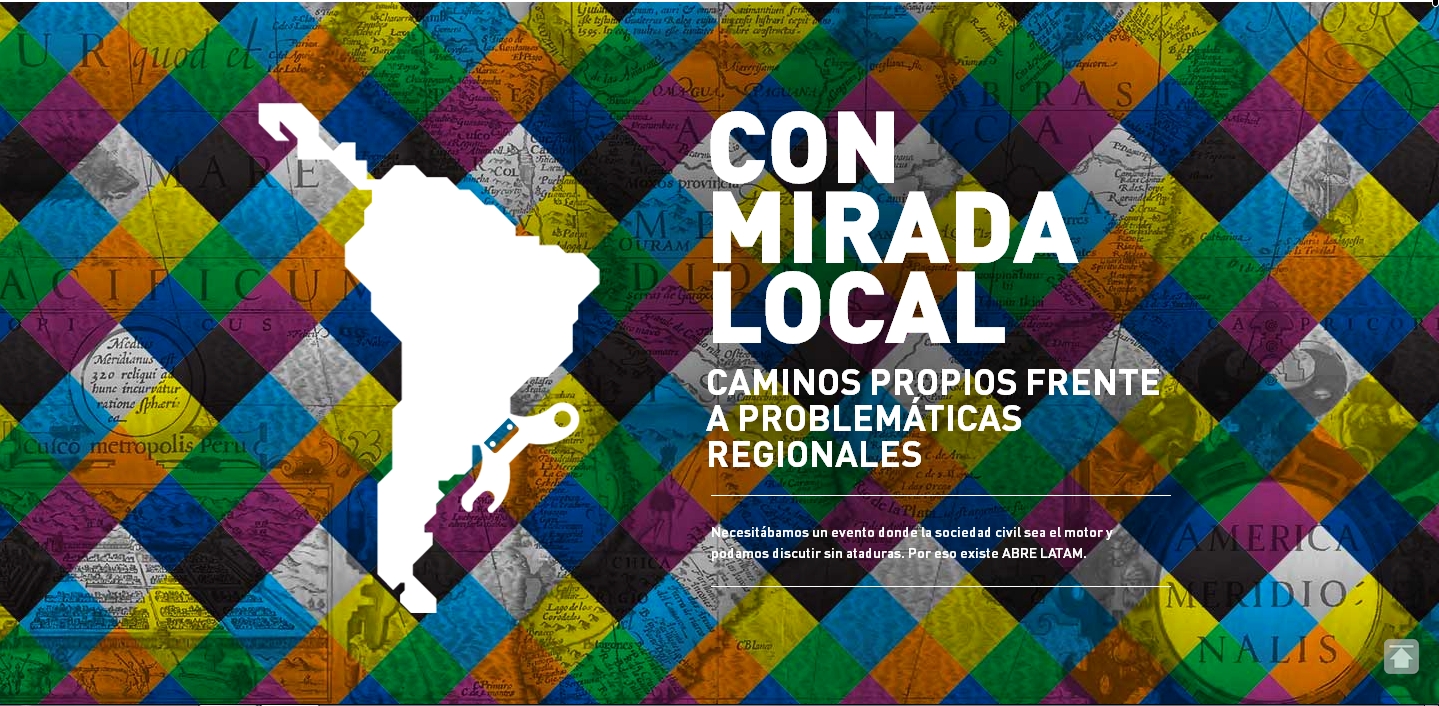
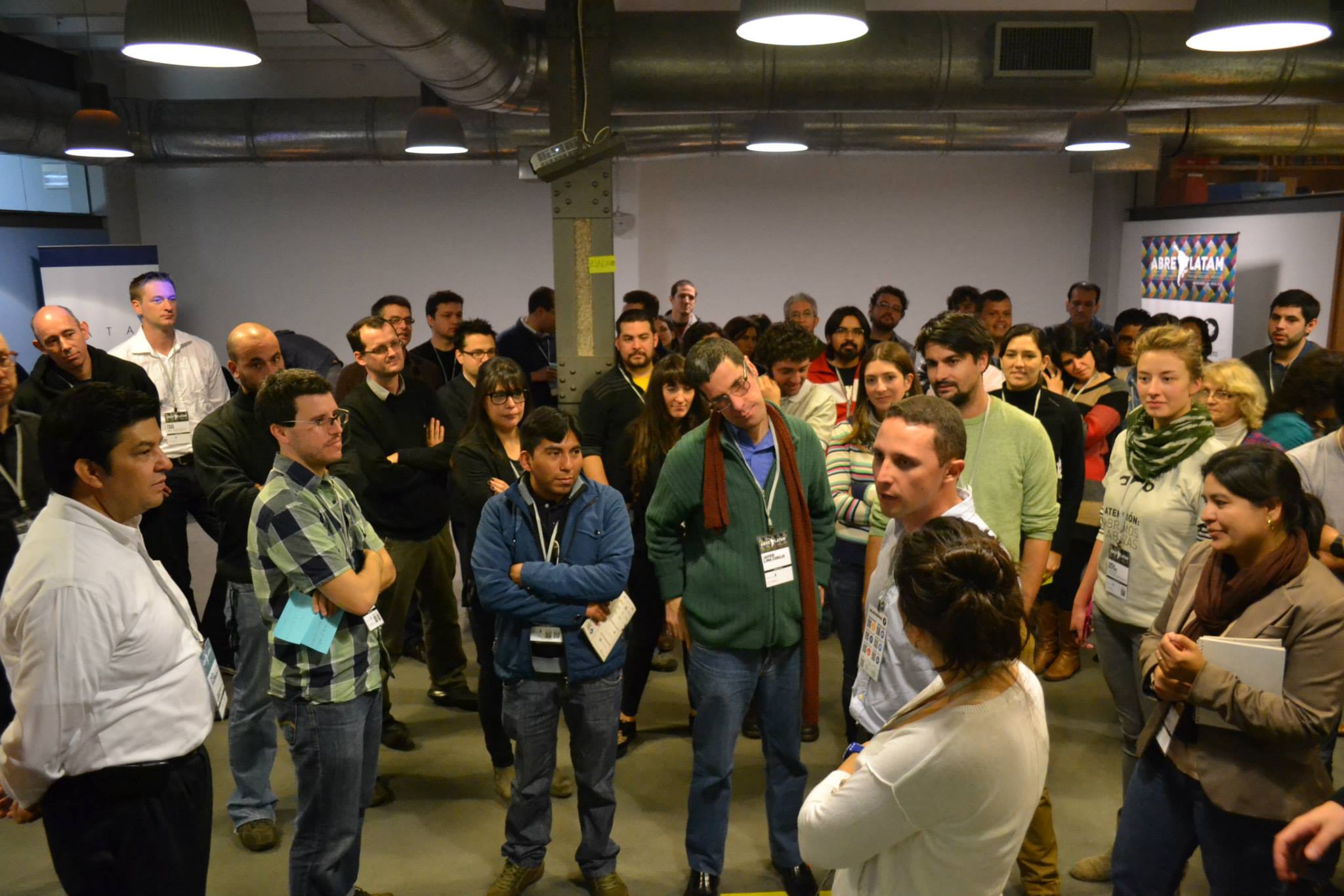
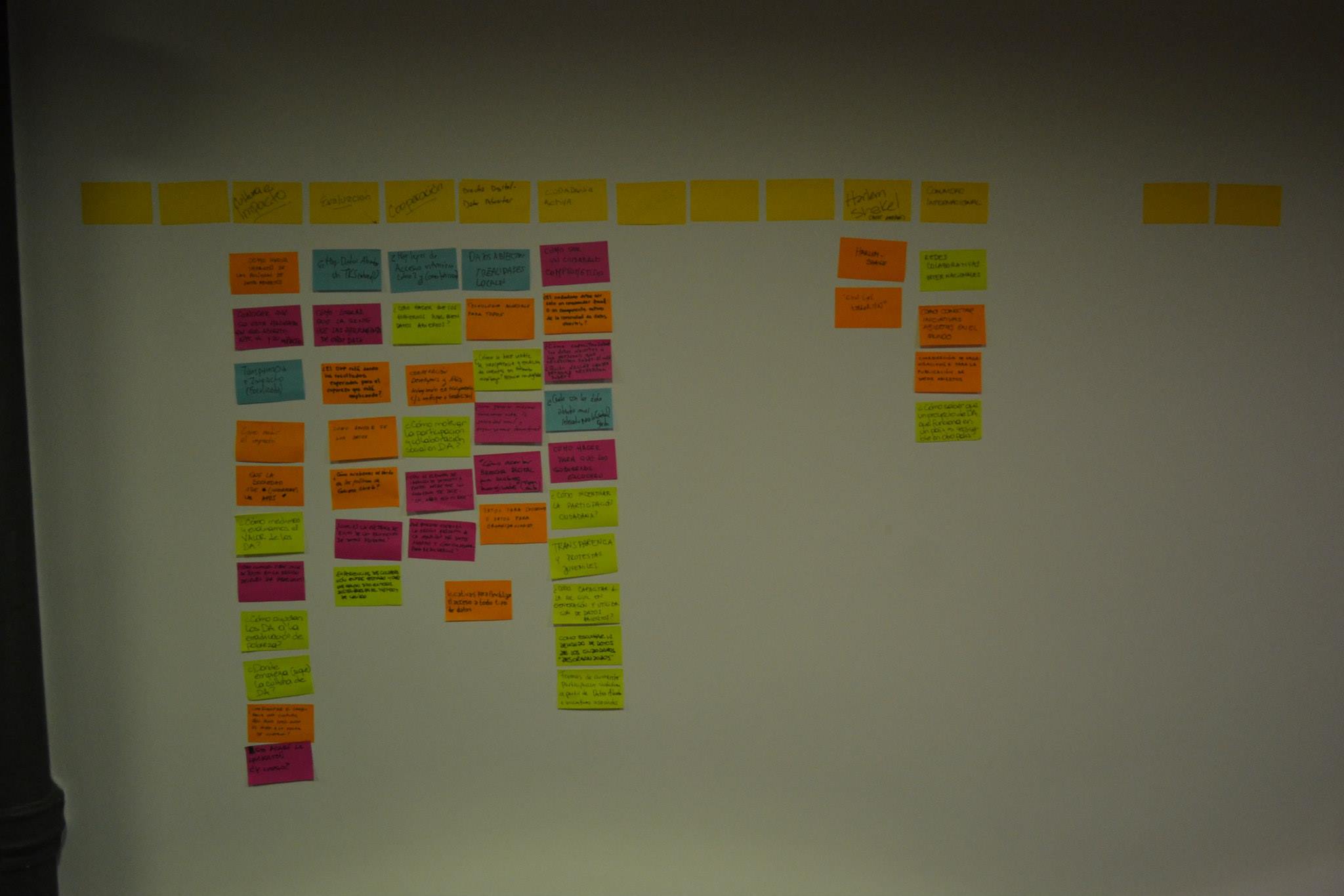
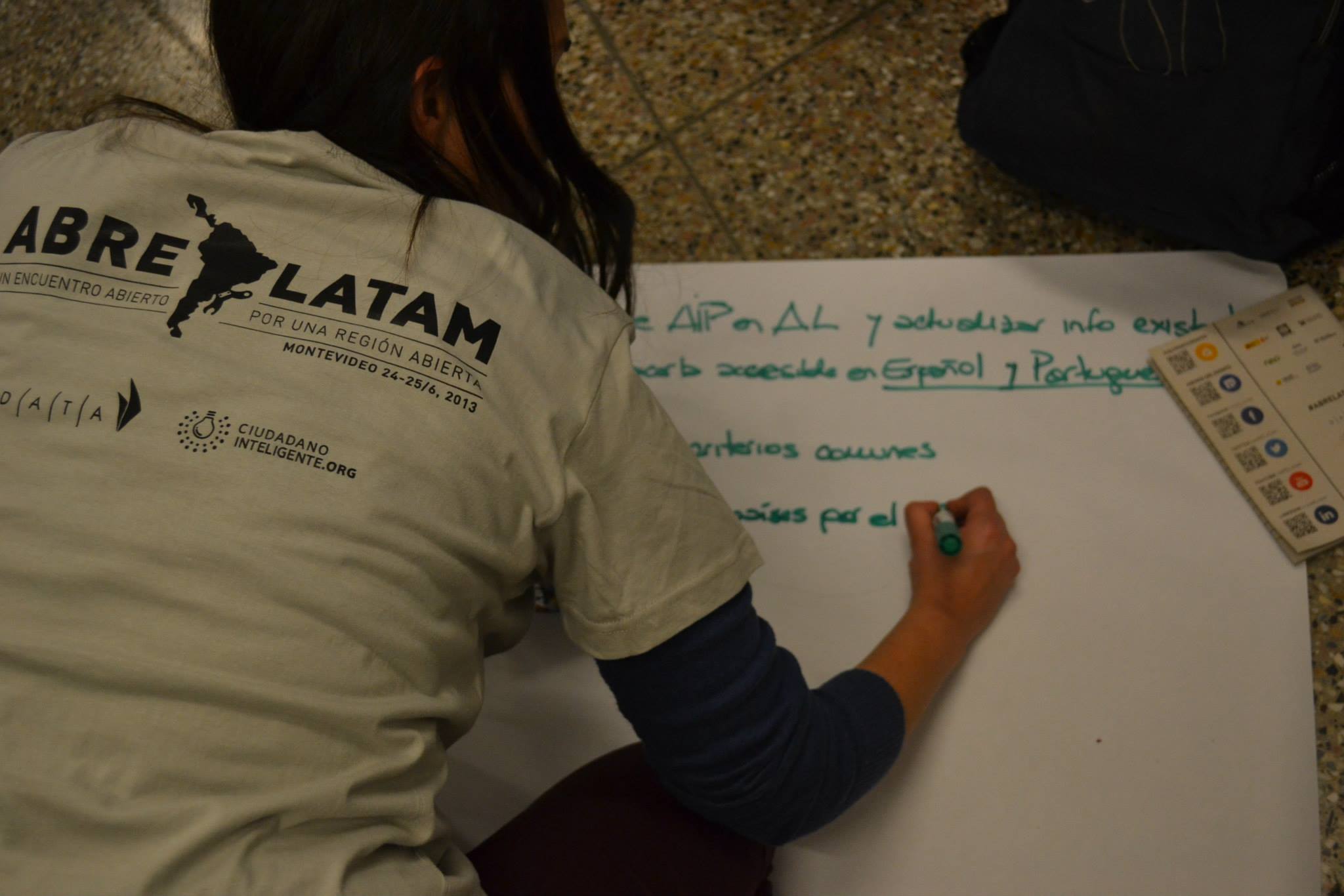
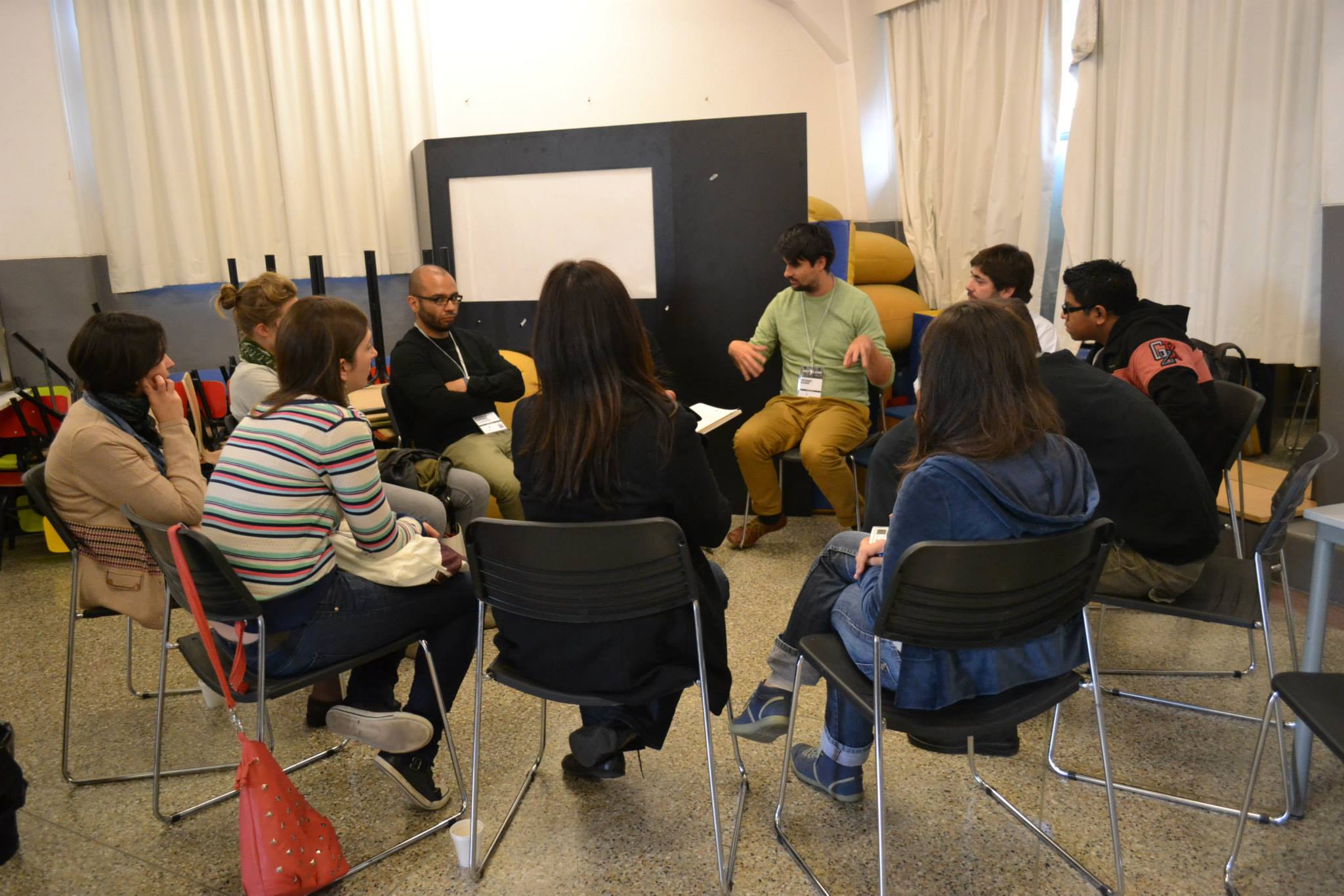







2 comments